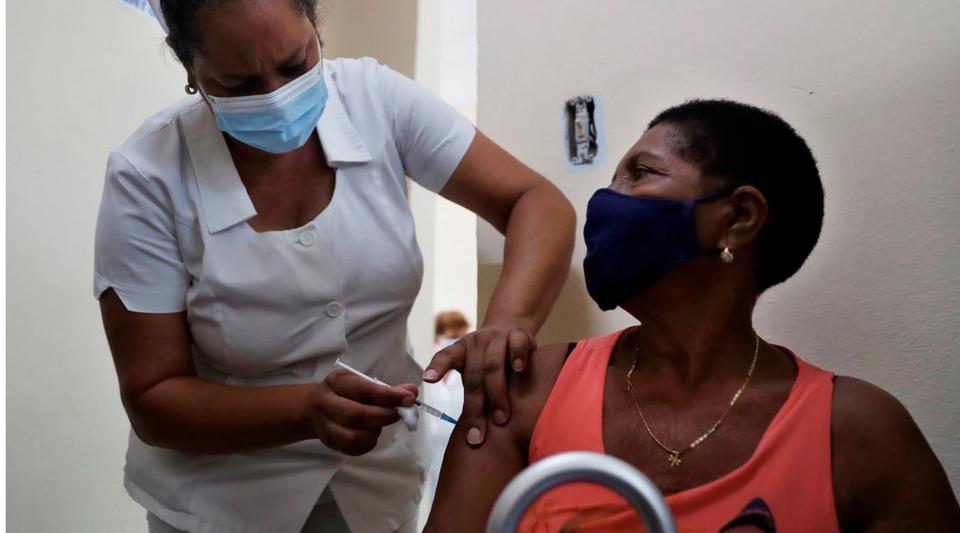
The National Political Board of the Broad Front received this Friday, October 29, its representatives before the Commission of Experts on Social Security (CESS), José Luis Baumgartner, Ernesto Murro and Jimena Pardo.
The FA delegates to the commission referred to the work process and recommendations for the reform of the pension system prepared by the nine members of the ruling party of the Commission of Experts on Social Security.
In this framework, the FA expressed in a statement that the aging of the population and the impact of technological change on the labor market (along with other factors, such as the pandemic), “make it necessary to periodically address reforms and reviews, studied and agreed upon, of the social security system ”.
But, as the Broad Front has already stated, “these reforms should not exclusively take into account financial sustainability.”
In addition, “they must consider that the system continues to have and improves the coverage and protection it provides to people, that is, that it has social sustainability. Social investment contributes to generating fairer and more egalitarian societies, which translates into greater trust in the institutions and in their democracy ”.
The FA recalls that during the 15 years of the left-wing government “many and important reforms” were made, such as: “in social security, health, labor, tax, among others.”
“We reformed the BPS pensions, facilitating their access and improving what is charged, unemployment insurance, family allowances, maternity / paternity and half-hour leave for newborns, substantially improving all benefits. We also reformed the banking, police, military and notarial Savings Banks (all of them, except the notarial one, pending reform since 1997). We grant rights to monotributistas, small entrepreneurs and self-employed workers, people with disabilities, athletes, artists, domestic and rural workers. And in many of those important reforms for the people and the development of the country, without the votes of those who currently make up the government coalition ”, questions the FA.
The opposition points out that in the current Commission, its delegates also contributed ideas and studies on the issues analyzed.
The FA assures that the way of working in the first stage of the CESS, on the diagnosis, allowed its delegation “to actively participate in the process, contributing substantial improvements to the drafts that were being prepared, which was publicly recognized.”
Despite this, the Frente Amplio finally did not support the approval of the diagnosis, because it maintained and maintains important differences with its central aspects.
In the second stage of work, regarding the reform proposals, “unfortunately the government delegation to the CESS radically changed the way of working, and excluded from the discussion the representatives of the Broad Front, and the representatives of workers, businessmen and retirees and pensioners ”.
“They resolved that the report of recommendations would be prepared by the nine members appointed by the Executive Power and by the constituent parties of the governing coalition, and that once finalized, it would only be presented for the consideration of the other six members of the Commission” , questions the left.
It also states that said government decision deviated from the spirit of the convocation and unilaterally broke an area that had functioned correctly.
“Unusually, after having been prepared for almost three months exclusively by the nine ruling party members, the document clarifies that ‘it does not necessarily represent the position of the political parties that make up the government coalition, nor that of the Executive Branch'”, questions the FA.
For the Broad Front, it is “totally unacceptable that no one takes charge of the proposals presented.”
The left expresses that the President of the Republic, Luis Lacalle Pou, has said that “they are not binding.” Proposals that “will have a direct and profound impact on the quality of life of the population.”
“It is a way of reducing and hiding from Uruguayan society the serious and responsible debate that a transcendent issue requires, which can never be the object of political speculation. Furthermore, it is about presenting the recommendations as if they were only supposedly technical, when they have clear political and ideological definitions ”, considers the FA.
Electoral promises
The FA remarks that it has differences with respect to the way in which the work of the Committee of Experts has been developed and, beyond that, it has “profound differences with the content of the recommendations presented by the representatives of the ruling party.”
It adds that they signify a “notorious weakening of fundamental guiding principles that must be present in any retirement and pension reform.”
The FA statement indicates that the Commission’s recommendations “propose some changes that would seek a generic reform for all savings banks. There is some change that would seek to aim at strengthening benefits for the most underprivileged sectors. It has some specifics that could be shared. But this underpinning is done at the cost of increasing, by sweeping, the number of years of work required to retire and retire ”.
“Also at the cost of the sharp reduction in benefits, including disability benefits, in particular for the middle and lower-middle income sectors,” the left questions.
The FA assures that “the promise of the electoral campaign of the President of the Republic to maintain the retirement ages for current workers, is set aside when the retirement age and access to widow’s pensions are indiscriminately increased, without considering certain realities : not all have the same conditions, which threatens to leave a large number of people without protection at ages where they would not have the possibility of reintegrating into work ”.
The changes considered as a whole “not only burden the adjustment on the middle classes, but they also do not fully contemplate the situation of the workers to whom it claims to be assured a minimum income, given the demands set by the proposal, since they will have access to same several years later than in the current situation ”.
For this reason, the FA disagrees with “the conception that inspires the draft recommendations, where little and nothing is said about intragenerational justice, wealth redistribution, solidarity, a central element of social security, in addition to avoiding poverty. and replace the income that people earn in activity ”.
The document suggests that the only desirable redistribution of income is “that which is strictly essential to guarantee certain vital subsistence minimums while promoting unfair self-financing and equating individual responsibility with the superior responsibility of the State.”
Likewise, “equal rights and opportunities for women appears strongly questioned in general,” indicates the opposition.
In addition, “contrary to what was announced by the representatives of the ruling party, the proposal is not comprehensive, since it does not continue to advance as it has been done since 2018, in reversing the enormous inequality and injustice that the current Retirement Service or Military Fund represents, but rather it maintains costly and unfair benefits for high-ranking officers in activity and in retirement ”.
For the Frente Amplio, the changes proposed for the individual savings regime make it worse: “they incorporate the proposals made by the private AFAPs, which increase insecurity and uncertainty for people and make it more complex and difficult to understand.”
Likewise, it considers that part of the proposed reforms, in addition, “would entail higher costs, impacting on an increase in the commissions that the AFAPs charge. In the wrong way, there is a confidence that the greater ‘competition’ will contribute to achieve better results for the affiliates, and that it will solve many of the problems of the system ”.
“The important transition costs that all new contributors from all savings banks imply are not yet known to enter the mixed system, which expands the AFAP market,” the FA statement stated.
At the same time, he questions that the recommendations made “excessively reduce the pillar administered by the BPS, which has a fundamental role especially for lower-income workers, making the individual savings pillar (AFAPs) mandatory, which worsens its current design in various aspects that impact on retirement and pensions ”.
Incomplete, unfair and negative
The FA states that it does not accompany the approval of the document presented, considering it “incomplete, unfair and strongly negative in several central aspects of its content.”
He entrusts his delegation to the CESS with the preparation of the voting basis document to be presented in said Committee.
It does not accompany the recommendations and reaffirms its willingness to continue working “intensely and seriously in the necessary reforms of the social security system with financial and social sustainability”, and with a “great national dialogue to develop once the Executive Power commits and formalizes in a bill its proposal ”, without prejudice to the work that its legislators will carry out.







